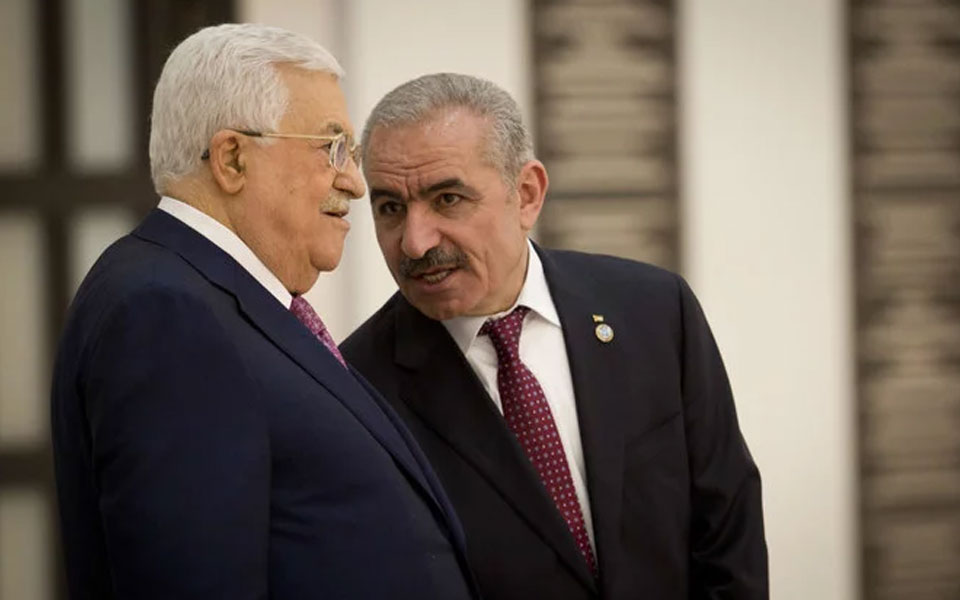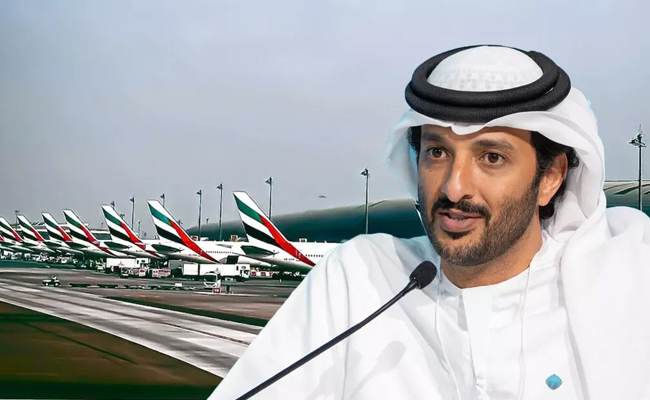Ramallah, Apr 14: A new government for the West Bank-based Palestinian Authority was sworn in Saturday, led by a veteran peace negotiator and harsh critic of Gaza's Hamas rulers.
President Mahmoud Abbas picked Mohammed Ishtayeh as prime minister, a move that deepens the internal Palestinian divide at a time when prospects for a peace deal with Israel are possibly at their lowest point ever.
A longtime adviser to Abbas and a senior member of his Fatah party, Ishtayeh and his 24-member cabinet took the oath of office at Abbas' headquarters in Ramallah.
Ishtayeh faces tremendous challenges, with the PA in a deep financial crisis following US sanctions and Israel's withholding of USD 138 million in key tax revenues it collects on behalf of the Palestinians. Israel says the slashed sums were designated for families of Palestinian who carried out attacks against Israel.
The new cabinet replaces a technocratic government formed by Rami Hamdallah in 2014 after an agreement between Fatah and Hamas, the Islamic militant group that has run the Gaza Strip after ousting Fatah and evicting the PA in 2007. Despite enormous Egyptian efforts, the attempted unity government failed to reconcile the two groups.
Abbas' firing of Hamdallah and assigning Ishtayeh, a British-educated economist, to lead the next government reflects his frustration over the narrowing chances of an inter-Palestinian unity accord.
As peace talks with Israel ran aground years ago and the Trump administration will likely put forward a peace plan that the Palestinians say favors Israel, Abbas badly needed to garner power at home and extend his control back to Gaza, which Hamas governs separately.
But Hamas accused Abbas of acting unilaterally, saying in a statement Saturday that swearing in a "separatist" government "boosts the division between Gaza and the West Bank as a practical step to implement the 'deal of the century,'" the name the Palestinians use to refer to the undisclosed US peace plan.
In a meeting with the new cabinet, Abbas, 83, called on them to continue "to fight the (Israeli) occupation with all legal means," referring to UN organisations, as well as through "peaceful popular resistance." He said Israel should bear the "consequences" if it did not withdraw from territories it occupied since the 1967 Mideast war.
Nickolay Mladenov, the UN Middle East envoy, said he hoped the new government would receive support "to overcome internal divisions." Last year, the Trump administration recognized Jerusalem as Israel's capital, triggering the Palestinian Authority to sever its ties with Washington.
The Palestinian leadership fears that Israel would retain major Jewish settlements in the West Bank and that the seat of the future Palestinian state would be in Gaza instead.
Ishtayeh's government, which controls those parts of the West Bank on which the PA has autonomy, doesn't feature significant changes from its predecessor. Five members, including those of foreign affairs, finance and the two premier deputies, retained their posts. Ishtayeh holds the interior and religious portfolios.
The Palestinian government runs day-to-day affairs while Abbas and the PLO's Central Committee, which he also heads, manage the political decision-making.
Ishtayeh, 61, holds a PhD in economic from University of Sussex and had been a minister in previous governments. He was also a member of the Palestinian negotiating team.
Let the Truth be known. If you read VB and like VB, please be a VB Supporter and Help us deliver the Truth to one and all.
Udupi: Manju Kola, husband of former Udupi City Municipal Council Vice-President Lakshmi Manjunath and a Hindutva organisation leader, was stabbed during a meeting held to settle a dispute related to a love affair at Malpe on Tuesday night.
Police have arrested five accused in connection with the case.
According to information available, Manju Kola had reportedly called for a compromise meeting near Malpe beach in the Palimaru area on Tuesday evening to resolve an issue involving a couple. During the discussion, a heated argument broke out and a youth allegedly stabbed Manju Kola.
He sustained injuries to his abdomen and collapsed. He was immediately shifted to a private hospital in Udupi for treatment.
Udupi Superintendent of Police Hariram Shankar said that five accused have been arrested in the case. As per preliminary investigation, the incident appears to have occurred due to personal reasons. He clarified that there is no communal angle to the incident and urged the public not to spread rumours.
The injured Manju Kola is out of danger and his condition is stable, the SP said.





